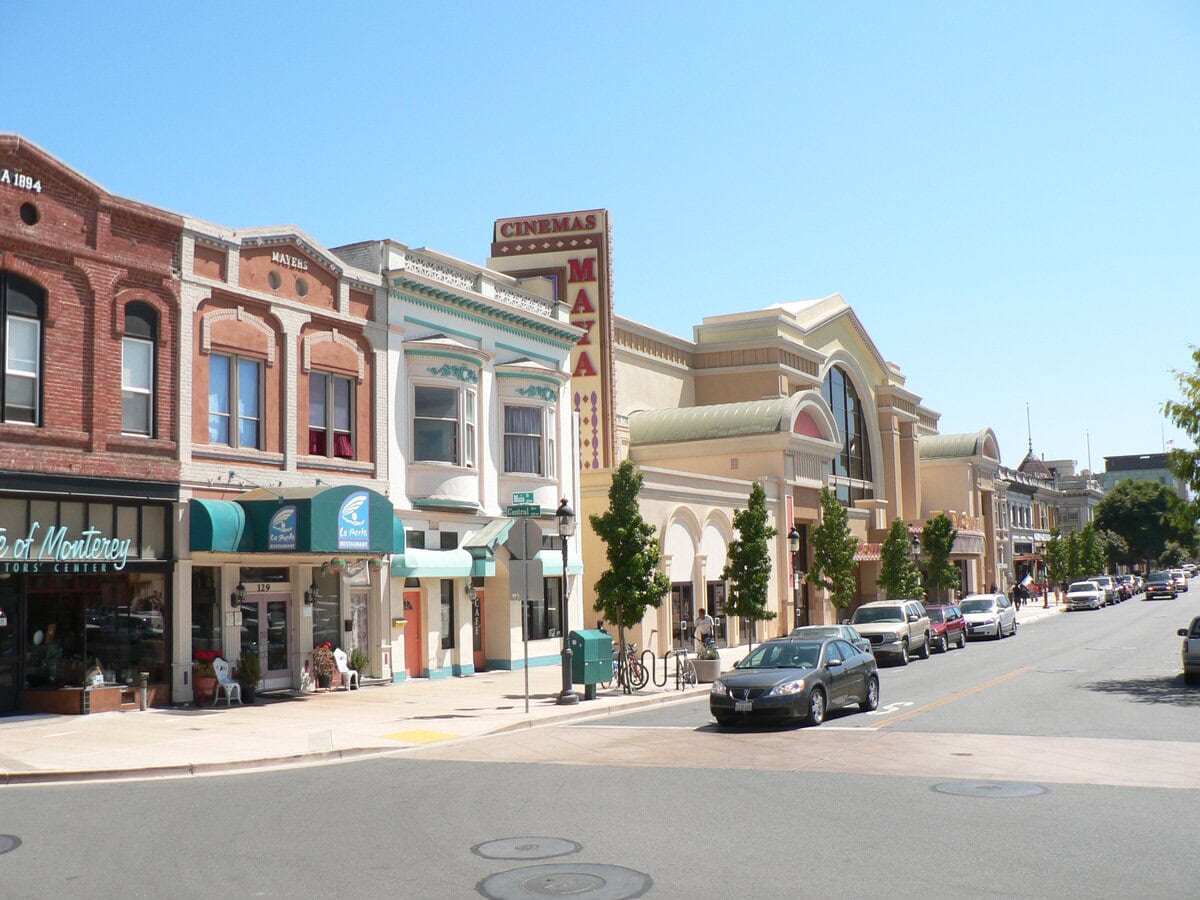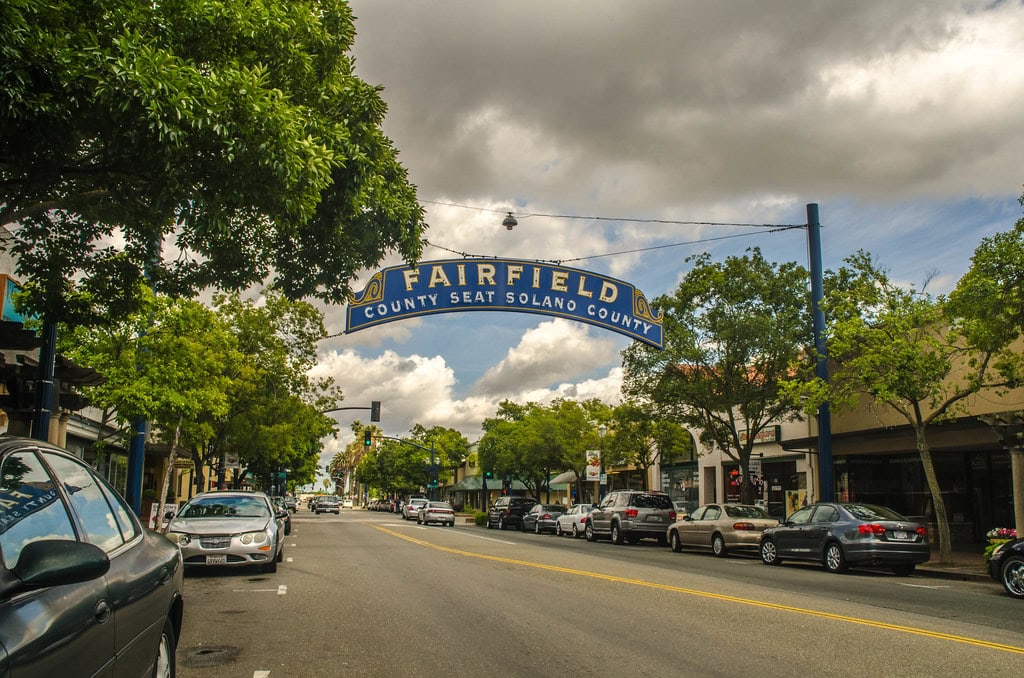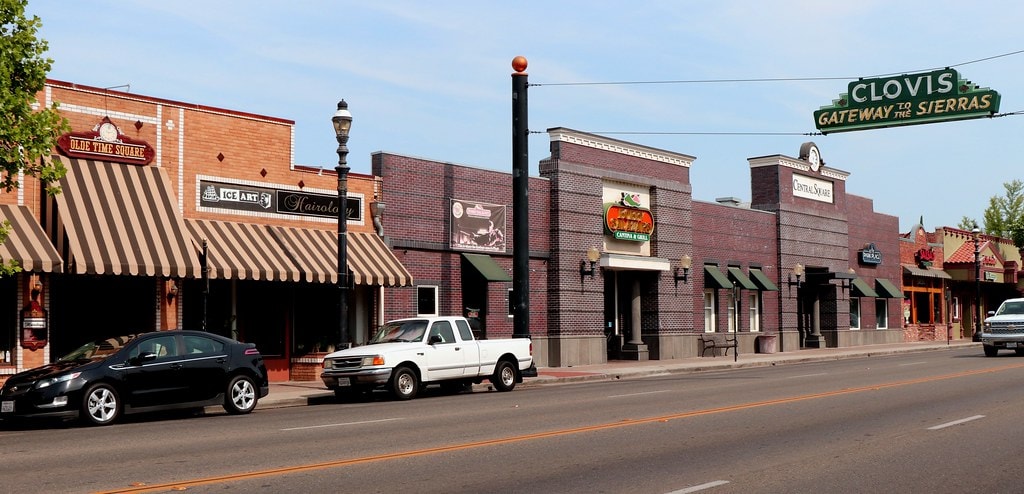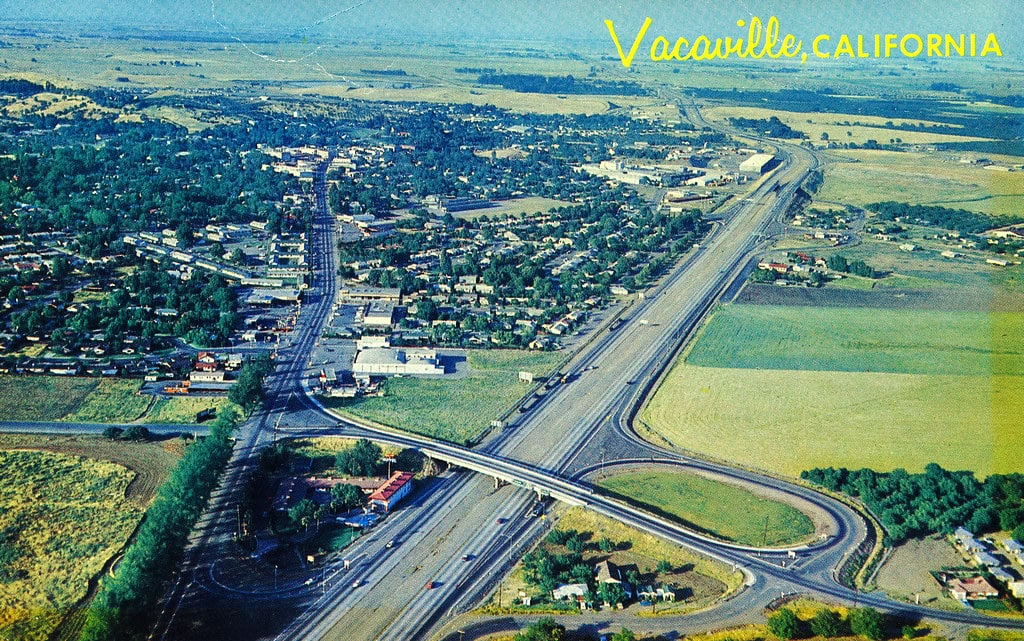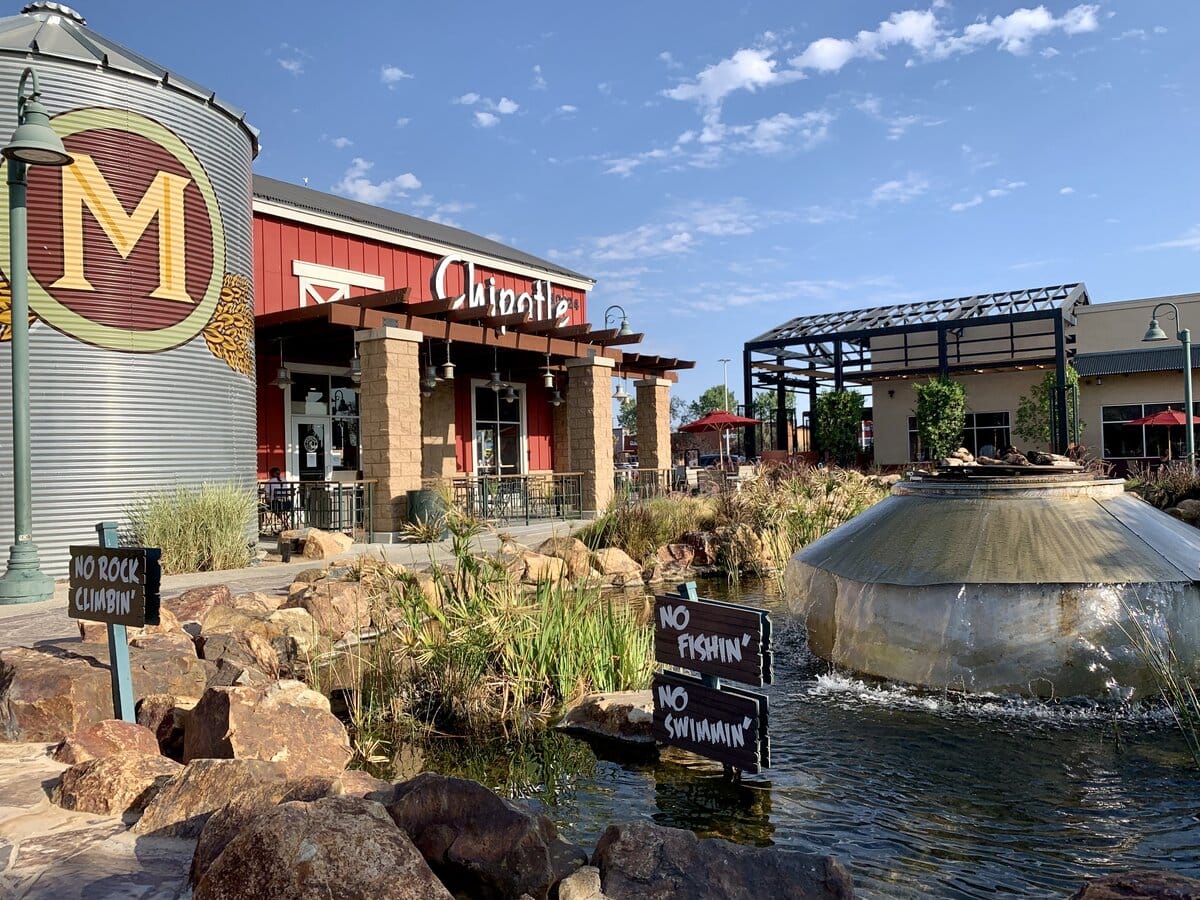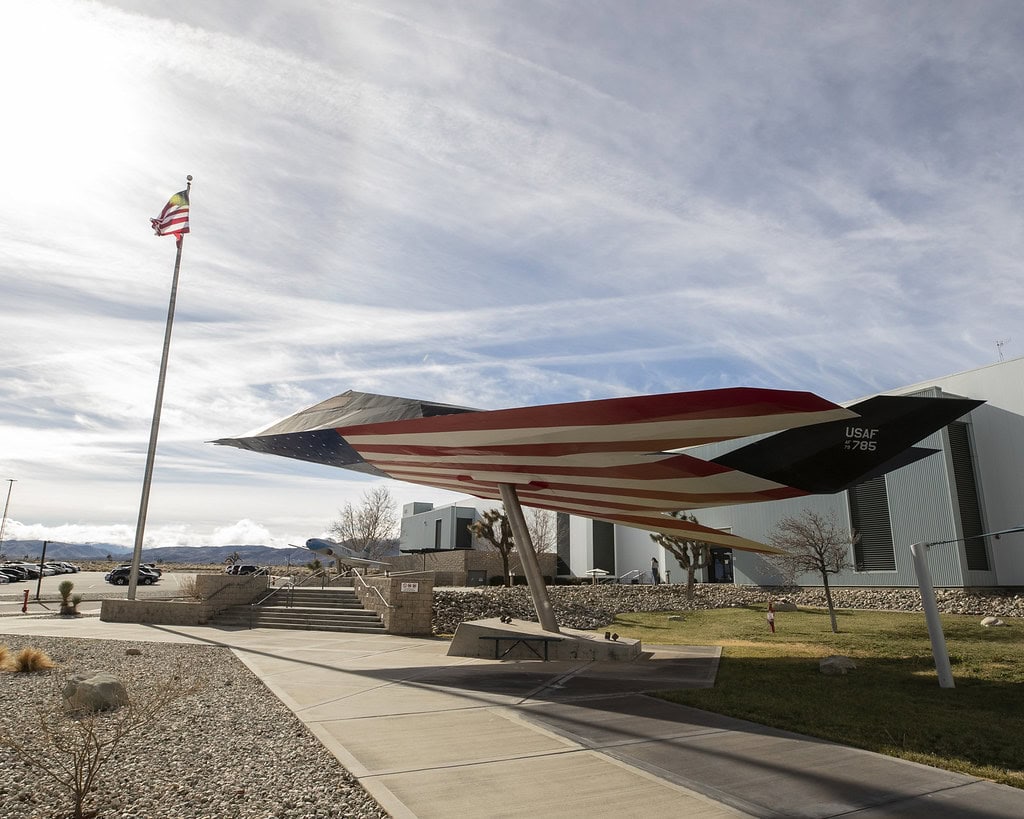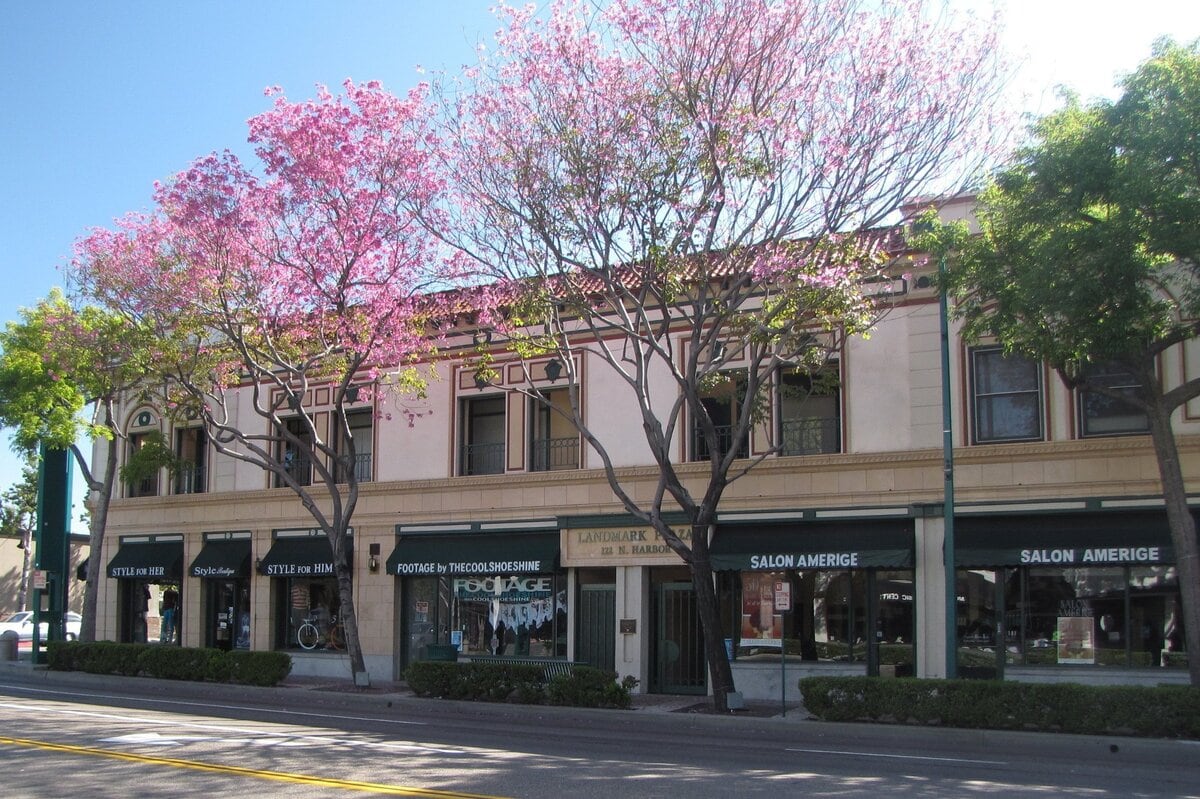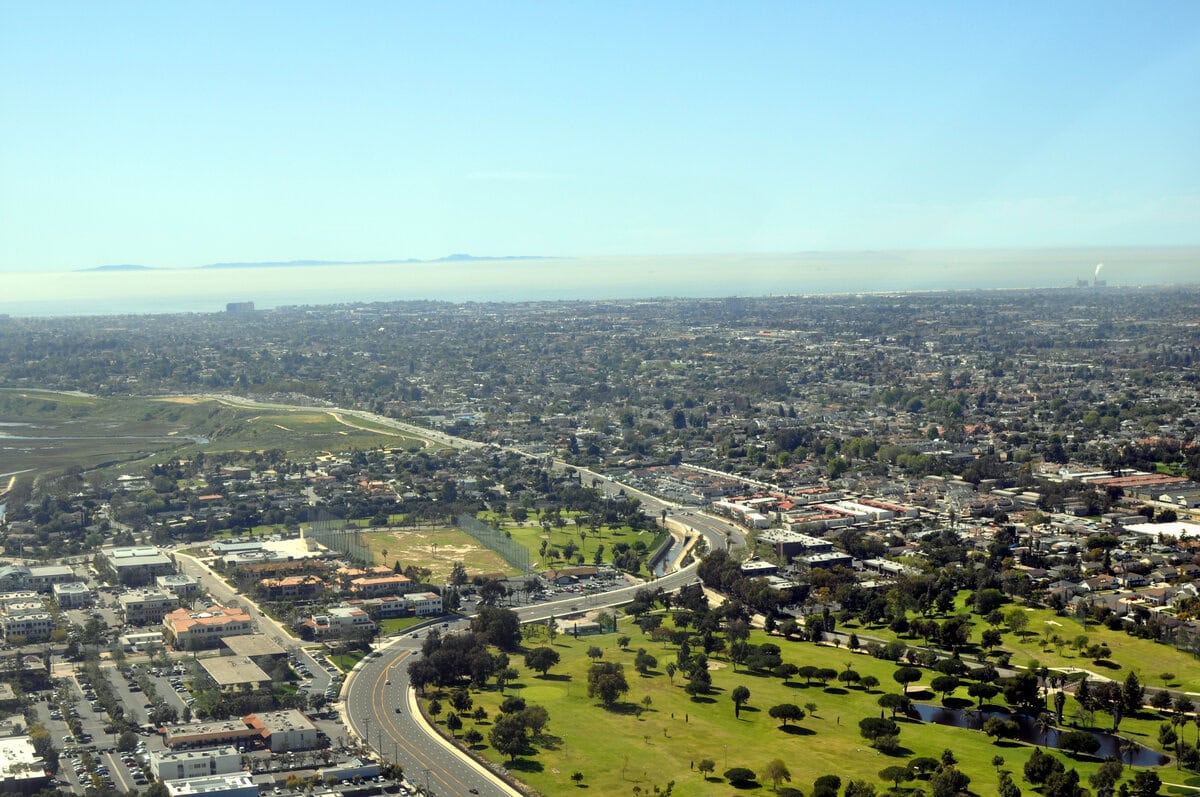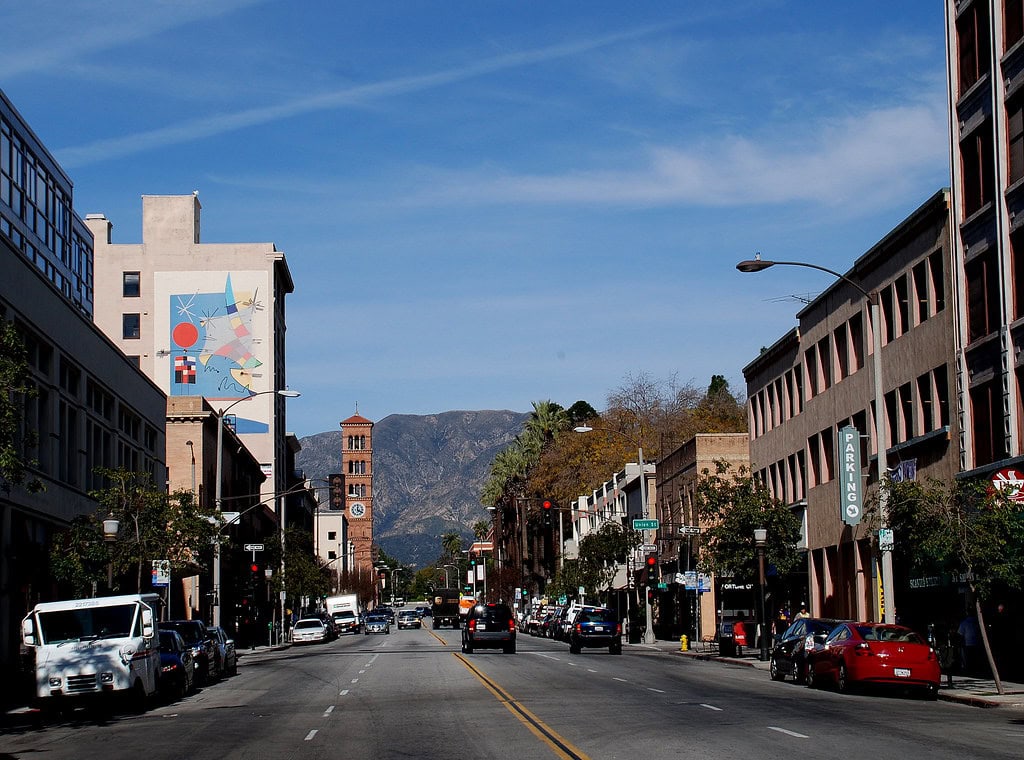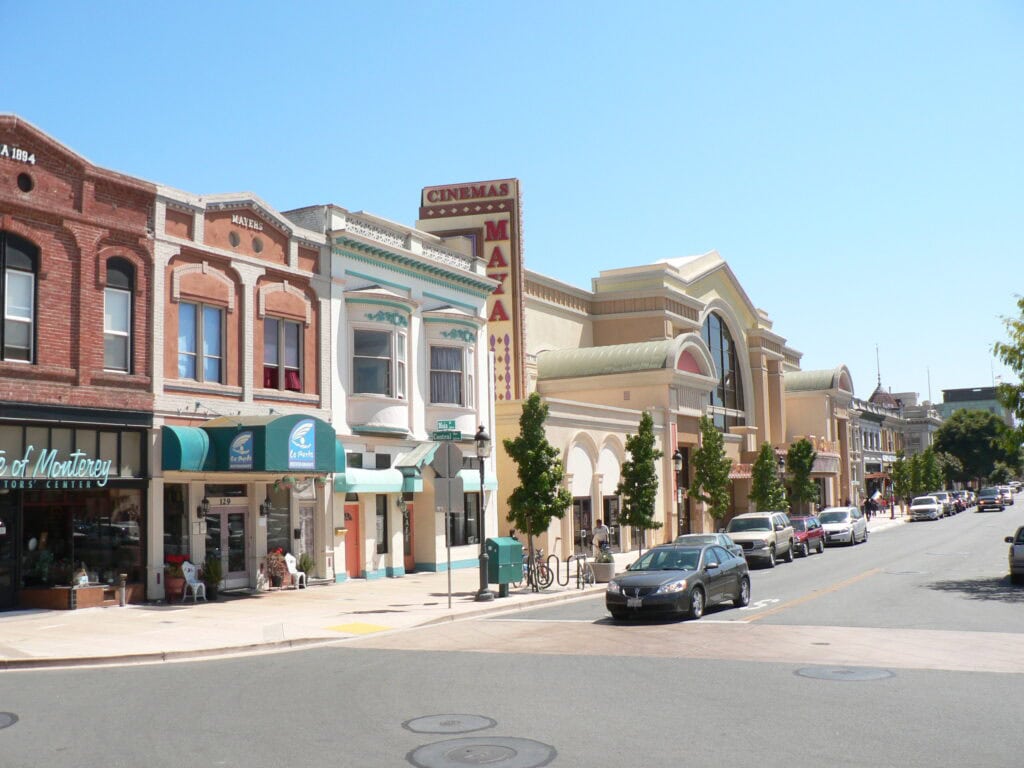
The world's first bagged salad sprang from Salinas
In 1989, Fresh Express, a Salinas-based produce company descended from Bruce Church Inc., launched the first nationally marketed ready-to-eat bagged salad.
Its founders developed a breathable "Keep-Crisp" packaging that extended shelf life without preservatives.
Before that, packaged greens had limited reach.
The innovation enabled supermarkets across the U.S. to stock pre-washed salad mixes, transforming consumer habits.
Even today, Fresh Express processes tens of millions of pounds of greens monthly from its Salinas operations, and the valley remains a hub for salad and fresh-cut vegetable production.
Salinas has one of California's highest Hispanic proportions
Per the 2020 U.S. Census, 79.6 percent of Salinas's population identifies as Hispanic or Latino, making it the city with the highest share of Hispanic Americans among California cities.
The city is also among the top in the U.S. by that metric.
In the same census, about 12 percent of residents identified as White (non-Hispanic), about 5–6 percent as Asian, and small percentages in other racial categories.
This demographic composition shapes Salinas's cultural life, bilingual institutions, festivals, immigrant networks, and evolving political landscape.
Taylor Farms planted its headquarters in downtown Salinas
In August 2015, Taylor Farms moved its corporate headquarters into a five-story tower in Oldtown Salinas.
The building cost tens of millions of dollars and includes underground parking, street-level retail space, and a rooftop assembly area.
Taylor Farms, founded in 1995 by Bruce Taylor and now one of the world's largest fresh-cut vegetable producers, relocated about 150 employees immediately on-site.
Locating the headquarters amid the city's historic core was part of a deliberate repositioning: not just a bedroom suburb for agriculture, but a place where agriculture and urban life converge.
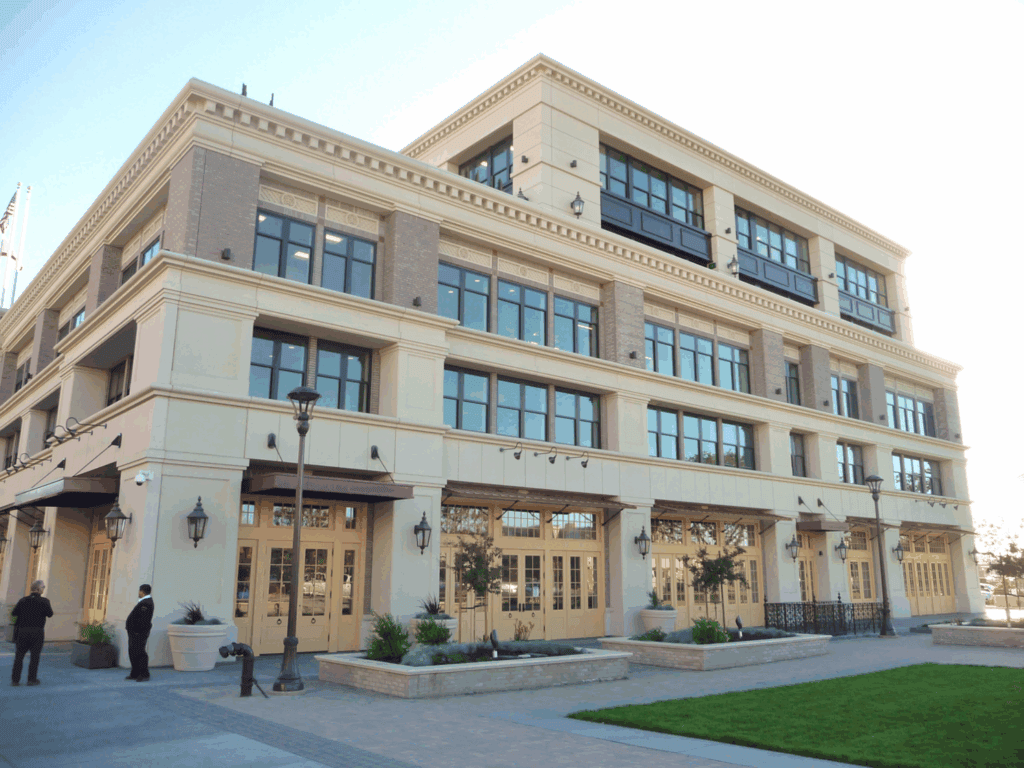
A museum devoted to Steinbeck anchors Main Street
At 1 Main Street in downtown Salinas stands the National Steinbeck Center, which opened in 1998 as a museum, archive, and education space dedicated to John Steinbeck.
Its exhibits include immersive installations of his novels, manuscripts, oral histories, and touring exhibitions on his global influence.
The center draws scholars, students, and readers to Salinas year-round.
Its location, just two blocks from Steinbeck's childhood home, creates a direct spatial link between personal history and public memory in the heart of the city.
California Rodeo Salinas has run on the same grounds for over a century
The California Rodeo Salinas, founded in 1911, continues to use the Salinas Sports Complex for its signature weeklong events in summer.
Over its lifetime, it has expanded stands, barns, livestock facilities, and spectator amenities, making it one of the larger rodeos in California.
The event includes timed contests, rough stock, livestock shows, and parades.
Its longevity and location in Salinas link agricultural traditions with modern competition, and the site remains central to the city's identity and calendar.
Steinbeck's Victorian childhood home is also a restaurant
The Steinbeck House, at 132 Central Ave., is a Queen Anne Victorian built in 1897 that served as John Steinbeck's birthplace and childhood residence.
The property, now operated by the Valley Guild, functions as a lunch-service restaurant and museum.
Visitors can tour the decoration and period furnishings, while the house's architecture, turrets, gables, and ornamental trim evoke the stylistic tastes of its era.
Steinbeck lived there until his adolescence, writing some of his early stories in upstairs rooms.
The house is also listed on the National Register of Historic Places.
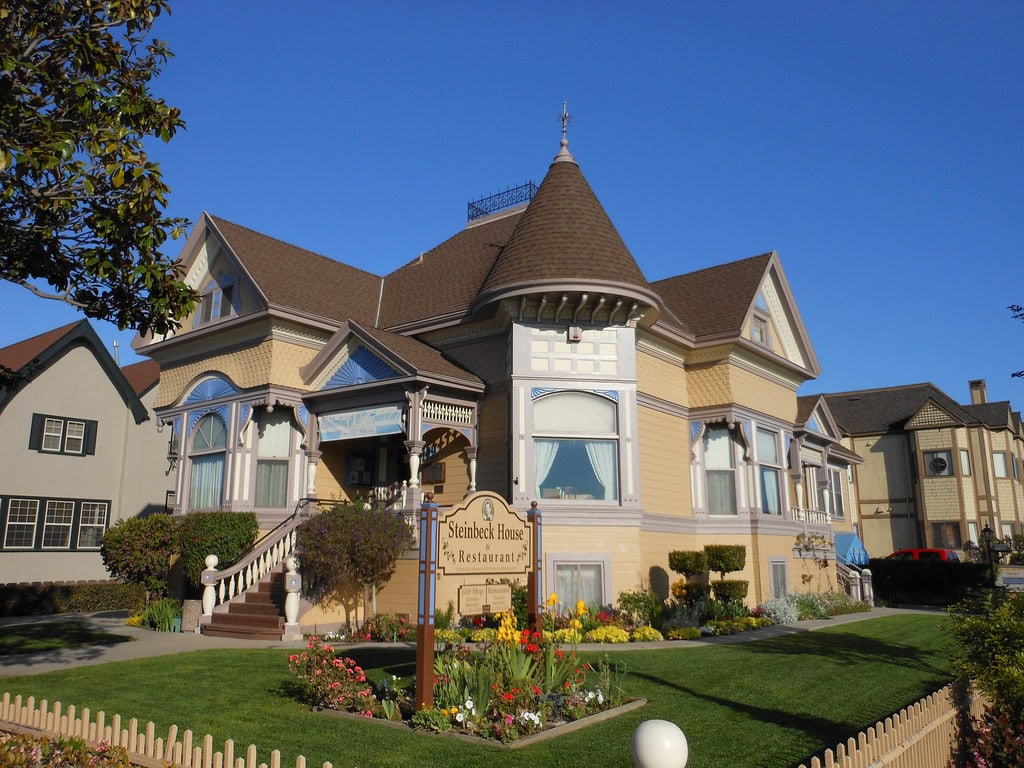
The county courthouse is a stone gallery by Jo Mora
The Monterey County Courthouse, which opened in 1937 at 240 Church St., features extensive sculptural work by Jo Mora, including relief panels, a travertine fountain, and bronze accents, that portray California history and culture.
Built under the Works Progress Administration, the complex encloses a landscaped central courtyard with Mora's designs integrating art and civic space.
In 2009, the courthouse was listed on the National Register of Historic Places.
The building still functions as a Superior Court location and hosts trials, legal offices, and public business.
From military base to annual airshow spectacle
During World War II, Salinas Municipal Airport was designated Salinas Army Air Base, used for flight training and airfield operations.
After the war, it reverted to civil use.
In 1981, the California International Airshow was launched as a volunteer-run event held annually at the airport, featuring military and civilian aerobatic teams, static displays, and fundraising for local nonprofits.
Over the decades, it has raised millions of dollars for community causes, drawing aviation fans to Salinas and activating the airport beyond routine flights.
A public college supports a professional theater
Hartnell College, founded in 1920 as Salinas Junior College, operates a main campus near downtown and runs The Western Stage, a resident professional theater company founded in 1974.
The theater presents multi-play seasons of musicals, contemporary dramas, and works tied to local culture.
Students from Hartnell's arts, communication, and production programs often intern or perform in Western Stage productions.
The marriage of a century-old public educational institution and an in-house producing theater is relatively rare in a city of Salinas's size, giving locals direct access to professional arts.
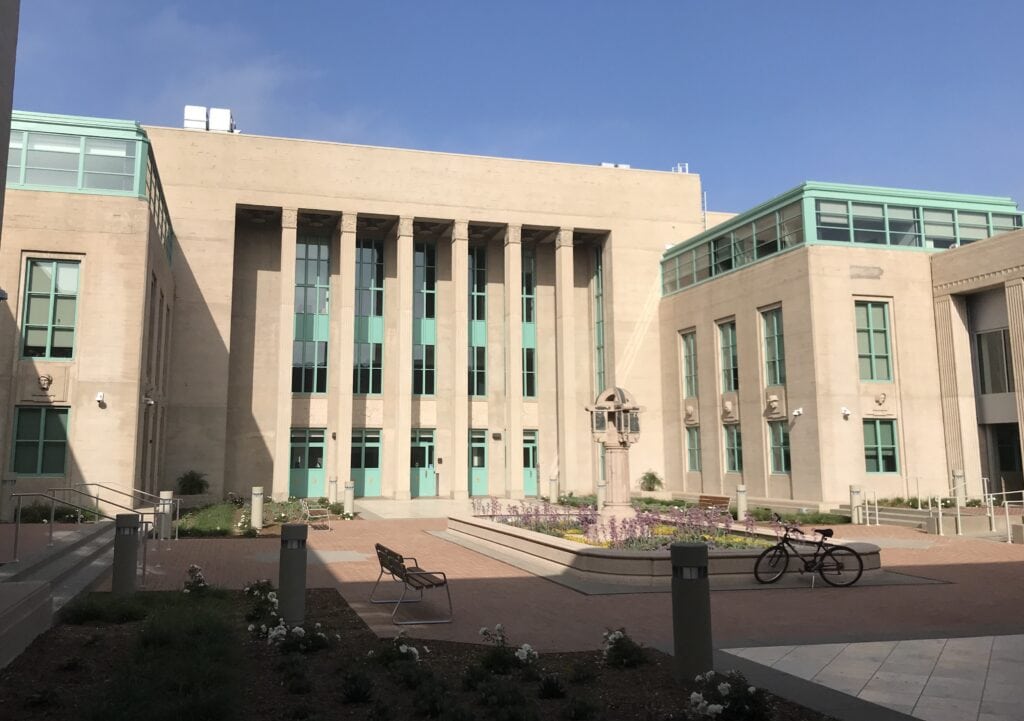
The historic train depot now links buses and rail service
Salinas's Intermodal Transportation Center, anchored by the restored 1941–42 Southern Pacific depot, serves Amtrak's Coast Starlight and regional buses.
The depot was renovated in 2014–15, and Greyhound moved in to improve transfers.
In 2021, local agencies completed upgrades in anticipation of the planned Caltrain extension service toward Salinas.
The Spanish Revival design of the building, stucco walls, red tile roof, and arches, was preserved.
Nearby freight buildings and a repurposed 1880s freight house host local rail exhibits, creating a living link between past and future transit.
Once a Chinatown anchor, now a neon-scarred relic
The Republic Cafe at 37 Soledad St. was built in 1942 in the Salinas Chinatown district and functioned for decades as a gathering place for Chinese, Japanese, and Filipino communities.
It hosted Lunar New Year banquets, weddings, and community meetings until closing in 1988.
In 2011, the building was added to the National Register of Historic Places.
A neon "Chop Suey" sign was restored during preservation efforts, but a 2022 fire heavily damaged the structure.
Local factions are working toward stabilization and possible reuse as an Asian cultural center.
In WWII, the rodeo grounds became a wartime detention center
From April 27 to July 4, 1942, the Salinas Rodeo Grounds served as the Salinas Assembly Center, a temporary confinement site for more than 3,600 people of Japanese descent during U.S. internment.
The facility used barracks erected near the racetrack; detainees were later transferred to the Poston internment camp in Arizona.
The site is now recognized as a California Historical Landmark, and community groups have documented the lives of those detained, many of whom had roots in Salinas and surrounding communities disrupted by forced relocation.
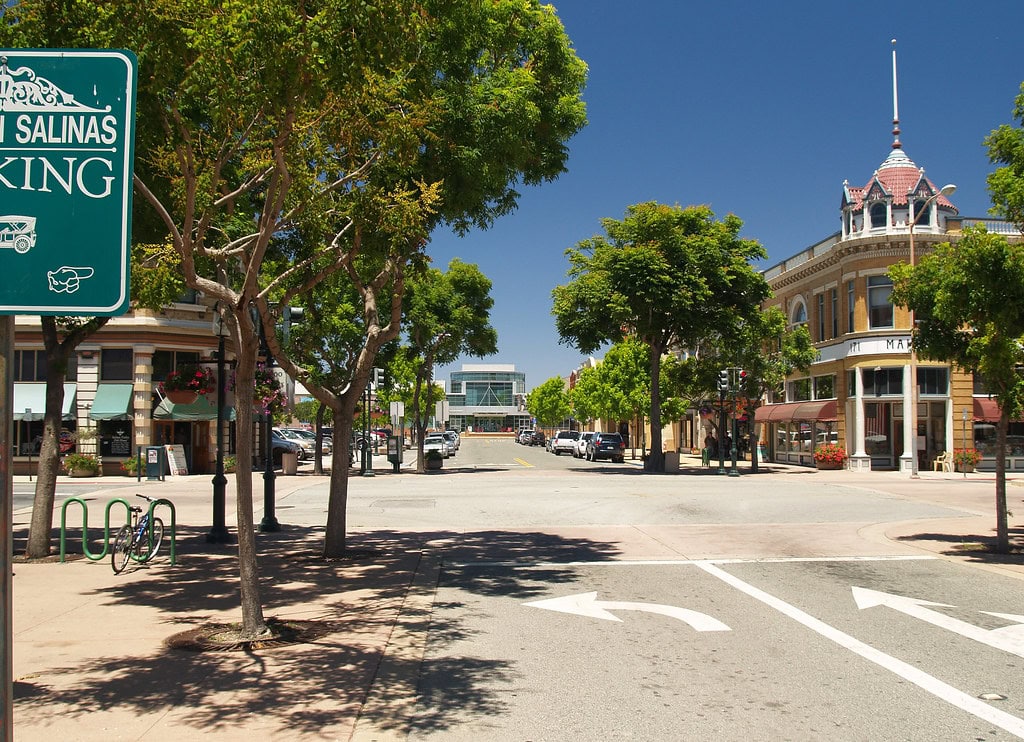
Downtown hosts an agtech startup hub inside an office
Within that Taylor Farms headquarters sits the Western Growers Center for Innovation & Technology (WGCIT), which opened in 2015 to house agricultural technology startups.
The center provides co-working labs, test beds, mentorship, and programming for companies working on robotics, sensing, data analytics, and food safety systems.
A Starbucks and a restaurant (Portobello's) serve tenants inside the building.
Startups operate amidst the same fields, growers, and infrastructure they hope to disrupt, giving Salinas a rare urban anchor for agriculture-tech entrepreneurship.
The Salinas Spurs once fed major league rosters
From 1982 to 1987, Salinas hosted a California League baseball team, the Salinas Spurs, at Salinas Municipal Stadium.
That franchise saw future Major League Baseball players, including Omar Vizquel, Sandy Alomar Jr., Jeff Nelson, and Dave Burba, pass through.
The club folded after six seasons, but its alumni demonstrate the region's connection to professional development pipelines.
Baseball records list promotions and statistical data from the Spurs to upper levels, anchoring Salinas in baseball history beyond its brief tenure.
A hospital born from a community drive in the 1950s
Salinas Valley Memorial Hospital opened in 1953 after local residents led a fundraising campaign to establish a regional medical facility.
That campaign, together with federal Hill-Burton funding, produced a nonprofit district hospital responsive to city and valley needs.
Over time, the hospital expanded with cardiac, neonatal, imaging, and outpatient units to serve a wide region.
Its governance as a public district means board meetings and fiscal planning remain local, while its location near Highway 68 positions it for service across neighborhoods and rural areas.

